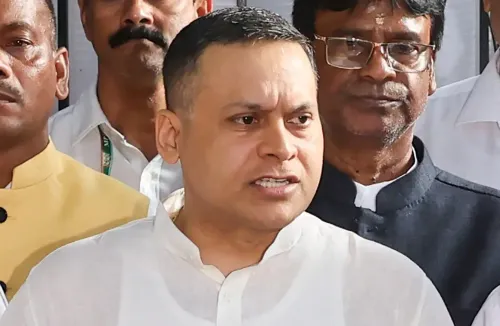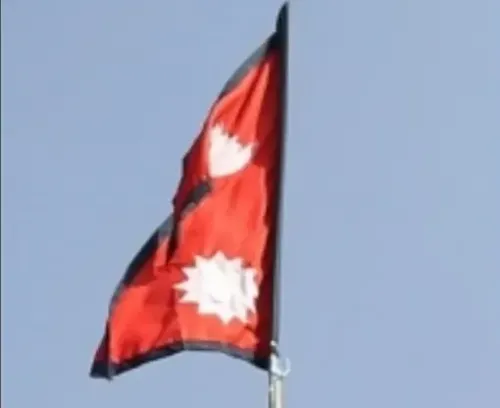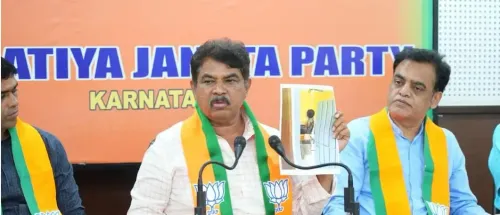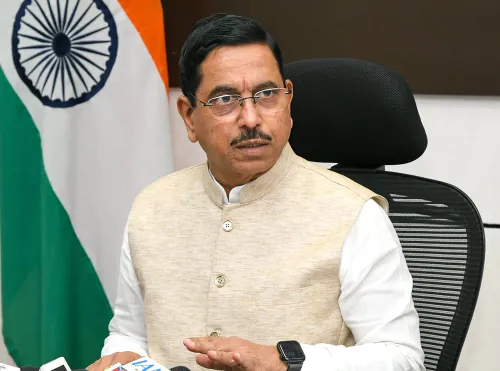Is V. Maitreyan's Move to DMK a Strategic Shift?
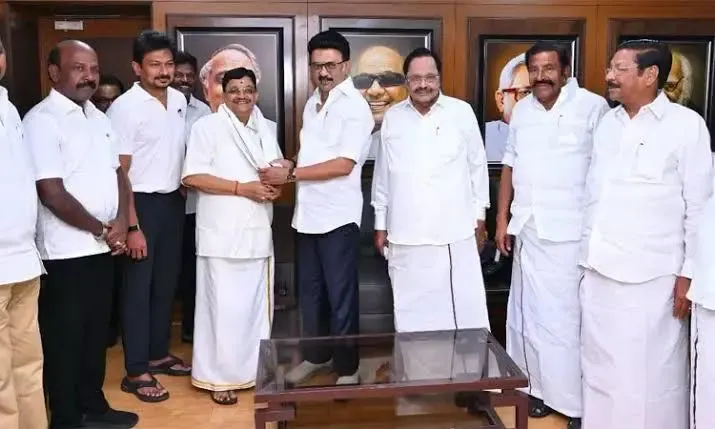
Synopsis
Key Takeaways
- Maitreyan's political journey reflects significant shifts in Tamil Nadu's political landscape.
- His experience may bolster DMK's strategies as they prepare for the 2026 elections.
- The move signifies ongoing realignment of political loyalties among leaders.
- AIADMK faces challenges with internal divisions and defections.
- Political observers anticipate further shifts as the elections approach.
Chennai, Aug 13 (NationPress) V. Maitreyan, a former member of the Rajya Sabha representing the AIADMK, has officially switched allegiance to the ruling DMK, marking a significant chapter in his extensive political career.
He met with Chief Minister M.K. Stalin at the party's headquarters, 'Anna Arivalayam', where he was welcomed into the DMK.
Once a key figure in the Rajya Sabha and a trusted associate of the late Chief Minister J Jayalalithaa, Maitreyan found himself marginalized within the party following her passing in December 2016.
The ensuing internal conflicts led him to ally with O. Panneerselvam during the factional divide, which ultimately resulted in his expulsion by then-general secretary Edappadi K. Palaniswami for alleged anti-party activities.
After his removal, Maitreyan rejoined his original party, the Bharatiya Janata Party (BJP), in 2023. However, his second term with the BJP did not yield any substantial political role.
Discontented with the lack of opportunities, he resigned from the BJP within a year and attempted to return to the AIADMK in 2024, requesting Palaniswami to facilitate his re-entry. Although he was reintegrated into the AIADMK, Maitreyan remained politically sidelined, lacking a prominent position or influence.
His transition to the DMK is perceived as a strategic maneuver and an indication of shifting political allegiances ahead of the 2026 Assembly elections.
Maitreyan has served three terms in the Rajya Sabha with the AIADMK, a tenure largely attributed to his close relationship with Jayalalithaa.
His joining the DMK could potentially enhance the party's political outreach, considering his experience in parliamentary politics and his connections within Tamil Nadu’s political landscape.
During the induction ceremony, DMK leaders expressed their confidence that Maitreyan's expertise would contribute meaningfully to the party's governance and electoral strategies.
While he did not criticize his former parties, Maitreyan's choice to join the DMK reflects his quest for a platform that provides political significance and a proactive role in shaping policy.
Political analysts suggest that this defection may represent a setback for the AIADMK, which has been grappling with internal divisions and defections as leaders reassess their positions in the evolving political environment.

